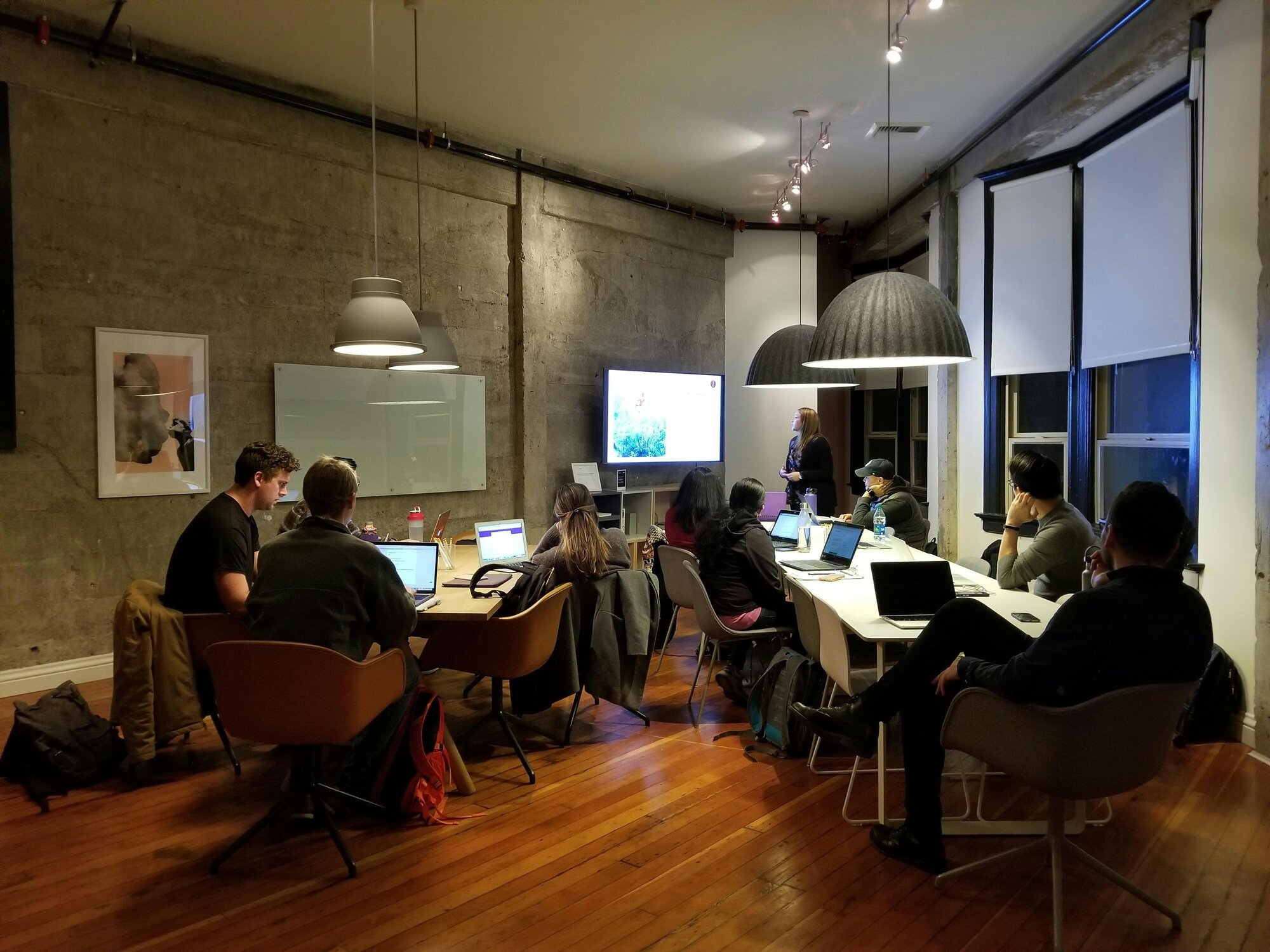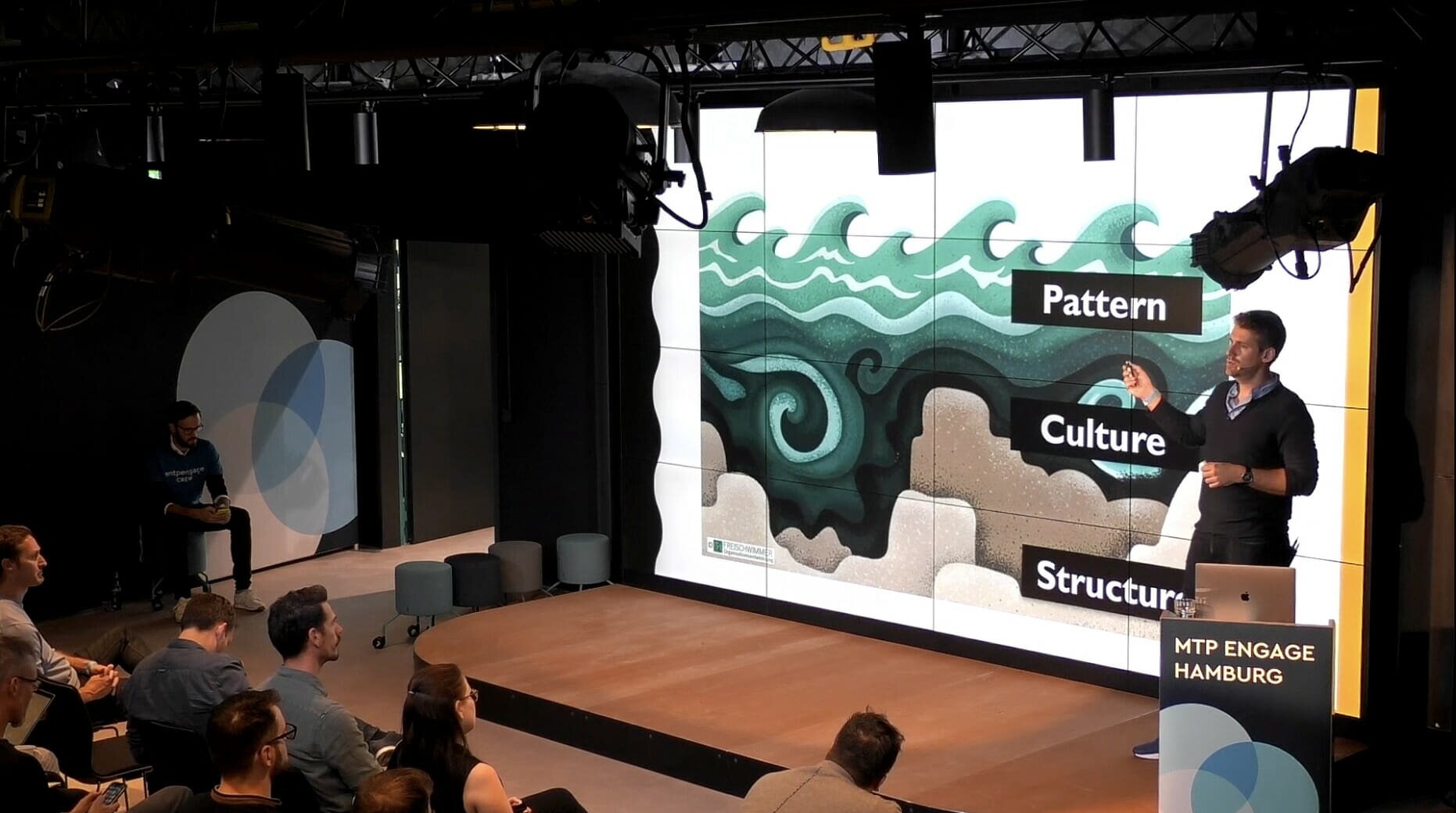In this ProductTank London talk, head of product at Ocado, Matthew Cornford, provides some tips on how product managers can get teams organized when dealing with complex physical and digital products.
Watch the video to see Matthew’s talk in full or read on for an overview of his key points:
- Provide autonomy
- Embrace Conway’s Law
- Align teams with strategy and KPIs
- Appoint directly responsible individuals
- Promote systems thinking
Provide autonomy
The first step to providing autonomy is to think about splitting the organization into groups or teams. Then give each team a part of the platform to be autonomous and minimize dependencies on other parts of the organization. This can lead to the creation of vertical or cross-functional teams.
Matthew and his team at Ocado develop robotics, grids, and the software that powers them. He explains that some companies with simple product teams may be divided into design, engineering, legal, and other departments. However, when working with complex products — such as they do — there are groups to consider, such as machine learning engineers, simulation specialists, and more.
Embrace Conway’s law
The second tip Matthew provides is to embrace Conway’s law. This law states that when organizations design a system, it is designed to mirror their communication structure. Matthew explains how his team makes use of this law to take advantage of autonomy. Once teams are decided, well-defined and stable APIs allow them to communicate and move quickly.
Align teams with strategy and KPIs
Product managers of large companies should be aware that if hundreds of teams aren’t working towards the same thing, there will be issues. This becomes even more critical with complex products. Therefore, the third tip is to align teams with a common strategy and KPIs. Matthew explains that top-level KPIs are applicable for the entire warehouse in Ocado’s case and other KPIs for smaller teams.
Appoint directly responsible individuals
By giving individuals responsibility, product managers can help their teams fight against the bystander effect. Matthew recommends that at the end of any meetings, ensure that each task has an owner responsible for that task to ensure its completion.
Promote systems thinking
Finally, for everything to work, someone needs to be looking at the bigger picture and be a system’s thinker. Speed is a focus in many organizations, but being fast can be counterproductive if it restricts another team in the company. Instead, product managers should look at the overall system and not just one section.
Enjoy more from ProductTank
ProductTanks are informal meetups, created by Mind the Product, to bring local product people together and to enable speakers to share amazing product insights. Today we have ProductTanks in more than 200 cities across the globe and there’s probably one near you.
Learn more about ProductTank – find your local meetup, explore more ProductTank content, see the latest ProductTank news, and discover ways to get involved!






